Plenary Session 3:Environment (Climate Change) & Pollution
| Time (GMT+8) |
Topic | Speaker | Country / Region |
|---|---|---|---|
| 16:30-17:00 | Tobacco control and TB prevention/care | Dr. Tara Singh Bam | Singapore |
| Time (GMT+8) |
Topic | Speaker | Country / Region |
| 17:00-17:30 | Estimating the National Carbon Footprint of Inhalers in Healthcare | Prof. Ming-Ju Tsai | Taiwan |
Tobacco control and TB prevention/care
Abstract :
Problem:
Tobacco smoking and tuberculosis represent a significant global public health concern. Smoking stands as a potent risk factor for TB. Extensive scientific research underscores smoking’s substantial role in TB, amplifying the risk of infection, mortality, treatment relapse, heightened clinical severity, and delays in both diagnosis and treatment. According to the WHO, the eradication of smoking could potentially reduce TB rates by up to 20%. Thus, there is a pressing need to prioritize concerted efforts in integrating TB and tobacco control strategies to address this critical issue.
Methods:
The Union’s ABC (Ask, Brief Advice, Cessation Support) approach has been integrated into regular TB services at selected TB clinics in Indonesia, India, Bangladesh, and China to promote smoking cessation among TB patients. During each visit, all patients were asked about their current smoking status. Following the determination of smoking status, brief advice was consistently offered at each visit. Personalized information was provided, emphasizing the benefits of quitting smoking for proper recovery from TB. Additionally, cessation support was extended, advising patients to refrain from smoking indoors and informing their family and friends about their decision to quit smoking.
Results:
The provision of brief advice lasting 5 to 7 minutes yielded impressive smoking cessation rates in India (67%), Bangladesh (82%), China (66%), and Indonesia (67%). Notably, in Indonesia, over 85% of TB patients ensured their homes were smoke-free by the end of their TB treatment, compared to only 18% at the beginning of treatment. It’s noteworthy that these results were achieved without incurring any additional costs to TB control programs.
Conclusion:
Effective tobacco control and smoking cessation initiatives within TB control efforts play a vital role in advancing the goal of ending TB. Incorporating smoking cessation as a key element of TB control programs is essential for achieving this objective.
Tara Singh Bam

Singapore
Estimating the National Carbon Footprint of Inhalers in Healthcare
Abstract :
The healthcare sector, vital for public health, significantly contributes to carbon emissions. Inhalers, commonly prescribed for respiratory conditions, notably add to healthcare emissions due to propellants with high global warming potentials. This presentation investigates the carbon footprint of inhaler usage, aiming to raise awareness for sustainable healthcare.
Through analyzing inhaler types, usage patterns, and greenhouse gas emissions, it estimates their carbon footprint. Key findings reveal significant carbon intensity differences among inhaler formulations, with metered-dose inhalers (MDIs) generally emitting more than dry powder inhalers (DPIs) and soft mist inhalers (SMIs). Variations in prescribing practices and patient adherence further affect the overall carbon footprint. The presentation emphasizes adopting environmentally sustainable alternatives, like low-carbon inhalers and recycling programs, and advocates for policy interventions and guidelines to reduce the carbon footprint of respiratory therapies while ensuring equitable access to treatments.
Additionally, it addresses indirect emissions from acute exacerbations of airway diseases, which necessitate hospitalizations and interventions, contributing significantly to healthcare emissions. Managing exacerbations involves medical procedures, transportation, energy consumption, and waste generation. Addressing inhaler carbon footprints must consider mitigating the environmental impact of airway disease exacerbations, emphasizing preventive measures, patient education, and holistic management approaches.
By quantifying inhaler carbon footprints, this presentation contributes to sustainable healthcare practices, offering opportunities to minimize the environmental impact of medical interventions.
Ming-Ju Tsai

Taiwan
Dr. Chi Chiu Leung

Hong Kong
Prof. Shih-Lung Cheng

Taiwan
1. Chief, Department of Pulmonary Medicine, Far Eastern Memorial Hospital
2. Chief, The Center of Evidence-Based Medicine, Far Eastern Memorial Hospital
3. Duputy Director, The airway Assembly, Taiwan Society of Pulmonary and Critical Care Medicine
4. Deputy Head, Asthma Assembly, Asian Pacific Society of Respirology (APSR)
5. Professor, Yuen Ze University
6. Secretary General, Taiwan Respiratory Health Promotion Society
Dr. Liang-Wen Hang

Taiwan




